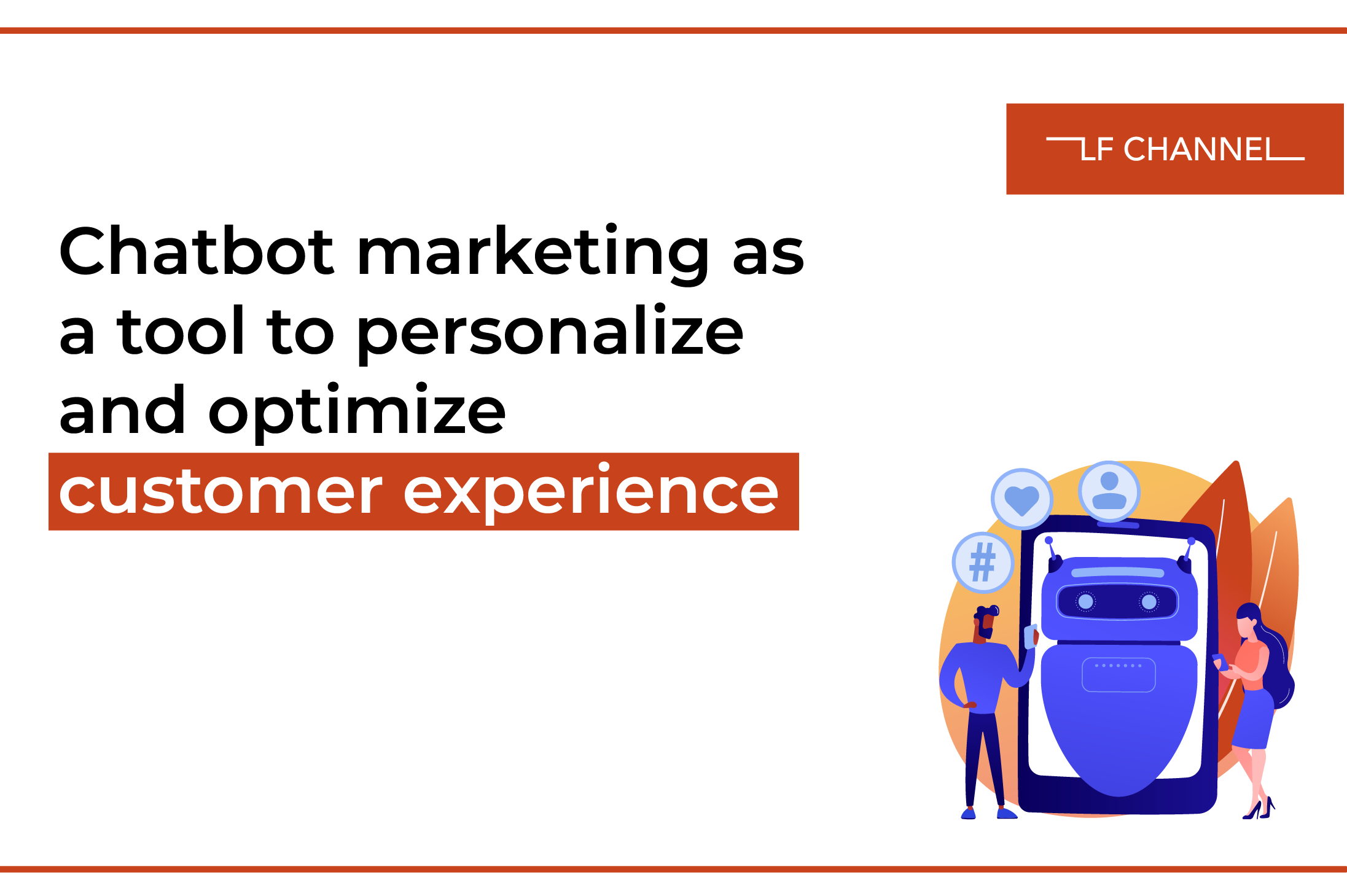Offering personalized customer service is one of the keys to the success of any business today. Customizing the customer experience attracts, retains and engages them with the brand. However, building customer trust takes time. Therefore, having the opportunity to listen to and understand your customers is essential to build trusting relationships.
Therefore, a company that seeks to stand out in the market must offer direct and personalized customer service, and to do this it is essential to take advantage of the potential of digital channels. Consumers want to resolve their doubts and solve their problems instantly and combining this with a customer service team working 24/7 becomes a complex task.
In this context, having an automated system that interacts with the customer without the need for a physical person answering seems very positive, right? Well, we are not talking about the future, we are talking about chatbots.
Chatbot marketing is a method that optimizes customer interaction processes (marketing, sales, support), while improving the customer experience by offering a personalized conversation with the brand. It is a tool used in Inbound Marketing since, by focusing on the user experience, it is crucial for a strategy of this type.
The technology behind these virtual assistants is becoming increasingly accessible and consumer adoption is growing year after year. Therefore, it seems that chatbots have a long way to go.
What are chatbots?
Chatbots are Artificial Intelligence (AI)-based applications capable of simulating real conversations with people. These conversational agents can ask and answer questions automatically, serving as virtual assistants. Therefore, this technology helps companies achieve a high level of engagement with users and solve their problems by talking to them directly in their private space.
In short, chatbots automate conversations to achieve common online marketing goals. They can be deployed on the web, in messaging apps like Facebook Messenger oR WhatsApp, or as part of native branded apps.
These intelligent virtual assistants can be useful for many tasks, such as providing technical support for customers and answering users’ questions about the product or service offered by our company. By configuring keywords, the virtual assistant can detect when it is faced with a frequently asked question and send programmed answers. Other common tasks for these AI assistants are scheduling appointments and tracking orders.
The key to understanding their success is that chatbots are able to learn thanks to algorithms developed by artificial intelligence and machine learning. They can even intuit the habits and understand the tastes of users.
What are the benefits of chatbots?
- Saving time and money
- Acceleration of the payment process by avoiding contact “cooling off”.
- Increased customer engagement
- Support in attracting potential customers
- Possibility to segment traffic
- Improve staff productivity by reducing customer service stress by reducing workloads
But what applications can chatbot marketing have?
- Lead generation
Chatbots can serve as a substitute for the terrible online forms that everyone hates. In addition, making the leap to the conversational format can translate into higher conversion rates as chatbots guarantee personalized attention from the first minute of customer relationship and allow you to follow up on their needs in an automated way.
- Segmentation of potential customers
But having a lead is not synonymous with guaranteed success. To streamline the customer acquisition process, it is necessary to evaluate the quality of the leads and their likelihood of conversion. With a well-structured chatbot, we can measure the degree of interest of the potential customer and the stage of the customer journey.
First steps to implement chatbots in your marketing strategy
The first thing is to design a conversational experience, preparing the artificial intelligence software to lead the customer to the programmed conversation. When it comes to defining the robot’s questions, we must focus on specific questions that allow us to direct the user to where we want him to go and not fall into generalities.
Among the objectives we can achieve with a chatbot are:
- Answer questions about the product or service
- Provide specifications on how the product works
- Send emails to customers
- Offer personalized and immediate attention to the customer
- Generate proximity, since this digital assistant uses the user’s language in real life.
Contribution of chatbots to Big Data Marketing
Data growth is unstoppable worldwide. According to data from Fortune Business Insights,, by 2030 the global data warehousing market will have an average annual growth of 17.8%. In this context, Big Data presents itself as a key tool for marketers.
In the case of chatbots, companies use them in lead generation activities within a Big Data plan to profile users and personalize their content. In this way, this technology records every interaction with the user and builds a database. Therefore, chatbots provide us with very detailed user information that, when analyzed, allows us to optimize our strategy and decision-making.
In short, the global market for chatbots will reach $39 billion by 2027, with the involvement of the public administration, banking and finance sectors and those linked to transportation, catering, tourism and e-commerce. What are you waiting for to take advantage of this success?
Be sure to visit our blog for more content.
Raquel González
PR and communication consultant
